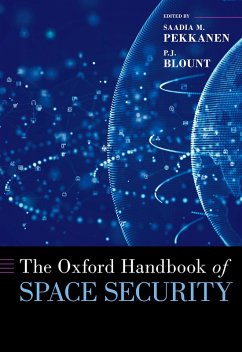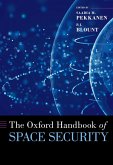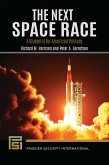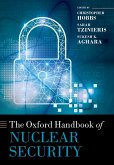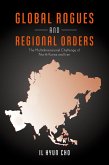Space security is a complex assemblage of societal risks and benefits that result from space-based capabilities and is currently in a period of transformation as innovative processes are rapidly changing the underlying assumptions about stability in the space domain. New space-based technologies are emerging at an accelerating rate, and both established and emerging states are actively and openly pursuing weapons to negate other states' space capabilities. Many states have set up dedicated military space units in order to preemptively counter such threats. In addition, a number of major private companies with a transnational presence are also investing heavily in extraterrestrially-based technology.
The Oxford Handbook of Space Security focuses on the interaction between space technology and international and national security processes from an international relations (IR) theory perspective. Saadia M. Pekkanen and P.J. Blount have gathered a group of key scholars who bring a range of analytical and theoretical IR perspectives to assessing space security. The volume theorizes the development and governance of space security and analyzes the specific pressure points currently challenging that regime. Further, it builds an analytically-eclectic understanding of space security, infused with the theory and practice of IR and advances analysis of key states and regions as well as specific capabilities. Space security is currently in a period of great transition as new technologies are emerging and states openly pursue counterspace capabilities. Bringing together scholarship from a group of leading experts, this volume explains how these contemporary changes will affect future security in, from, and through space. Applying lessons from international relations theory and practice and drawing from a range of social science subfields, the
Handbook is a definitive work for scholars who study the topic of space security.
Dieser Download kann aus rechtlichen Gründen nur mit Rechnungsadresse in A, B, BG, CY, CZ, D, DK, EW, E, FIN, F, GR, HR, H, IRL, I, LT, L, LR, M, NL, PL, P, R, S, SLO, SK ausgeliefert werden.

